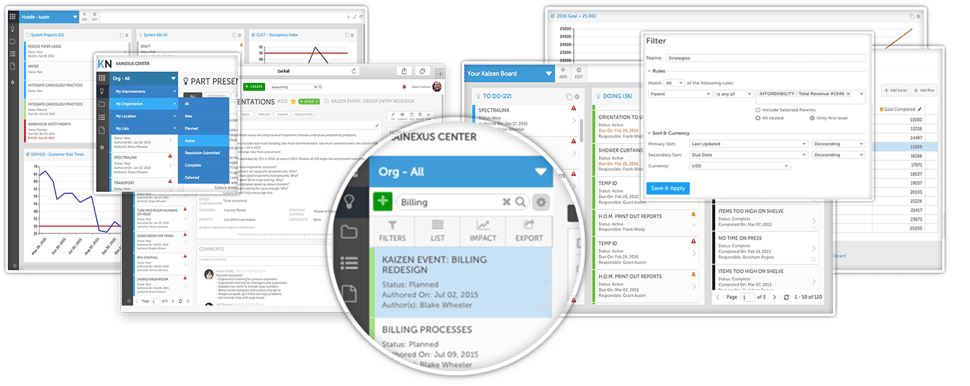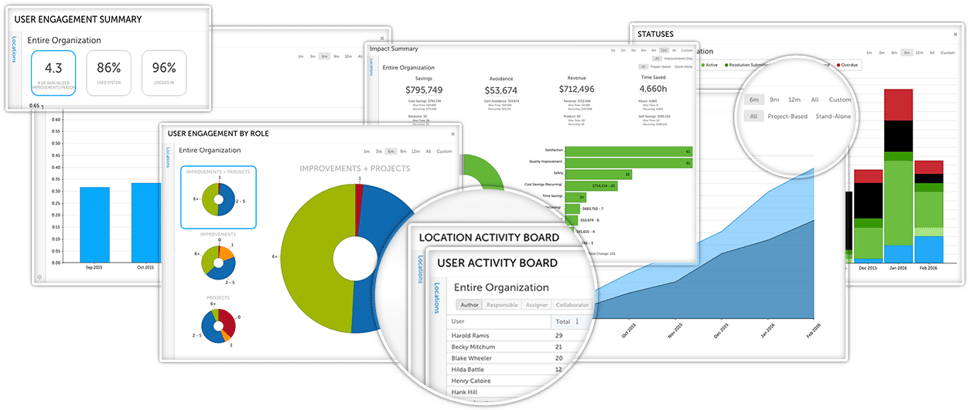 If you’ve decided to invest in technology to support your Lean construction efforts, congratulations. Giving your team the right tools for the job is always a smart move.
If you’ve decided to invest in technology to support your Lean construction efforts, congratulations. Giving your team the right tools for the job is always a smart move.
Picking the system that’s going to help you complete more opportunities for improvement, sustain those improvements, and calculate the impact of Lean is an important job. Most people have little experience selecting software of this type, so it can be a little daunting.
Fortunately, there are some easy ways to separate the solutions you should consider from those that will be of little value.
We’ve put together a series of questions that will help guide your selection process.
Does the Lean construction software facilitate capturing opportunities for improvement from anyone?
Lean management relies on every person in the organization to notice and report opportunities for improvement, so the system you select should make that seamless. Ideally, you will look for a cloud-based system with a mobile app so that your team can submit an opportunity at any time, from anywhere on the devices that they carry with them all of the time.
Is active improvement management included?
There are lots of reasons that we don’t recommend spreadsheets for Lean construction management. One of them is that spreadsheets are passive. They don’t notify team members when a task is due or managers when progress stalls. An effective Lean construction software solution will include alerts and notifications so that everyone is kept in the loop and projects get finished.
Does the system include impact reporting?
You haven’t decided to implement Lean construction just for the heck of it. You expect to get tangible results in terms of cost savings, project completion times, customer satisfaction, and safety. That’s why it makes sense to choose a solution that will help you measure the impact of every improvement you implement.
How is cross-functional collaboration supported?
A successful construction project relies on many different specialties working together in a coordinated fashion to achieve the final result. Many of the most significant opportunities lie in the places where those teams come together. Make sure the Lean construction solution you select streamlines communication between different functional areas.
Can different users have customized views?
Every person in your company has different needs for Lean related information. Executives may want to see how improvement is happening across the entire organization, while front-line team members may want to focus on only information that is relevant to them. You can expect your solution to have the flexibility to configure boards and reports for each person.
Does it include robust search capabilities?
People often underestimate the importance of search when implementing a Lean technology solution, but it is really a key requirement. Your Lean construction management system will become the receptacle for all of your collected improvement knowledge. It's important that it be easy to search for, and learn from, past improvement work.

Is improvement broadcasting included?
When you recognize and reward people who are suggesting ideas for improvement and working to see positive change realized, you spread your Lean culture and create a snowball effect. The best Lean construction software solutions include a simple, yet effective way to broadcast successful improvements.
How advanced are the reporting features?
In addition to search and broadcasting, the solution you select should have easy-to-use, but sophisticated reporting capabilities. Think of it as a window into the health of Lean culture within your firm. You should be able to understand how each person and team is contributing to your Lean efforts.

Was the system created as improvement management software, or was it intended for another purpose?
This is an important question because the rise in popularity of Lean in construction is causing some vendors with generic project management software to try to pass it off is appropriate for Lean. But improvement management, reporting, and broadcasting are not exactly like other projects, so we suggest looking for a purpose-built solution, not a re-purposed one.
Does the vendor understand Lean and can they be a source of knowledge?
This question goes hand in hand with the prior one. Don’t settle for a vendor that understands software, but not Lean. If you find a vendor with a background in improvement culture and Lean management, you’ll have a partner that can help you navigate your way to success.
If you get satisfactory answers to these questions, you’ll know that you’ve selected a system that can support your efforts to implement, spread, and sustain Lean within your organization.



Add a Comment